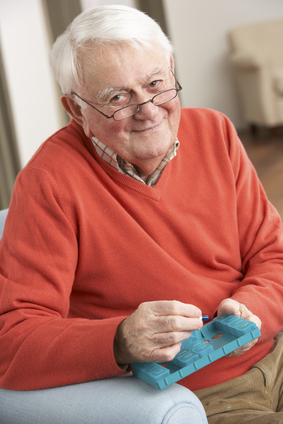As Patient Advocates we know everyone has a story. Most stories we hear from clients are related to adult children struggling to do the right thing for their aging parents.
I recently talked with an old friend who told me about her 90-year-old father who was living alone in the house where she grew up. Her dad had to go up and down stairs and had trouble getting in and out of the bathtub. He still drove, but only to the store. He had recently been diagnosed with dementia and was taking 7 medications for a variety of chronic diseases.
My first thought was “This is an accident waiting to happen! Why hasn’t my friend done something sooner? Why wasn’t she anticipating what he would need and making plans?” This scenario is not unusual.
We tend to think of our parents as they were when we were growing up. They were in charge. They knew what to do. They put up baby gates, made sure we wore our bike helmet, and knew when to call the doctor. But things have changed. We don’t need them to take care of us anymore. We are taking care of our children now. So why aren’t we making sure our aging parents are as safe as they made us? Having aging parents is something most of us weren’t trained to handle. We don’t want to think about our aging parents being anything but capable and high functioning.
It is easy to push any worries or thoughts away and tell ourselves everything is ok. When we had our children, we were always thinking ahead. Which daycare?, when is the next check-up? which summer camp?, what activities would be a good fit for them? But when it comes to our parents it is hard to think ahead. It is daunting and confusing so we just don’t do it. Patient Advocates help families’ sort out the “daunting” and “confusing” every day.
We know what options are available and what questions to ask. We know what to be carful of and why finding quality resources and care can make the difference between unsure and confident. Learning about options ahead of time makes the decisions so much easier when the time comes. Preventing a crisis by being prepared not only helps us feel less anxious, it also helps our parents.
My friend could find hire a Patient Advocate to help her find a new community for her dad to live where he would have people around to help him and watch out for him. If he refused to move, she could hire a non-medical home care agency to help with bathing, running errands and to make sure the house was safe for him. A Patient Advocate could attend doctor appointments with him and make sure the doctor understood the problems and concerns of the patient and family and that the doctor’s recommendations were understood and followed. A Patient Advocate could research options so she and her father could make informed decisions.
All crises are not avoidable but if you could do a little planning you might avoid a few of them and make life easier on your parent and yourself.










